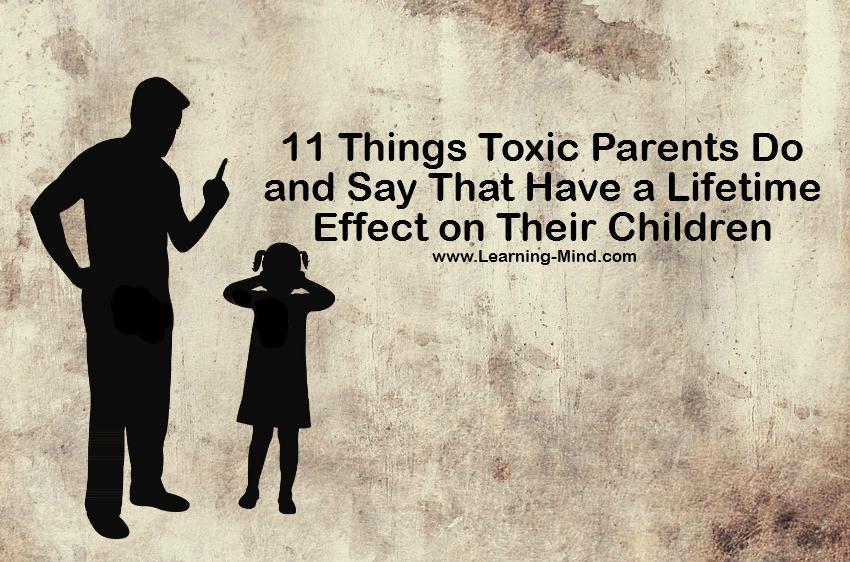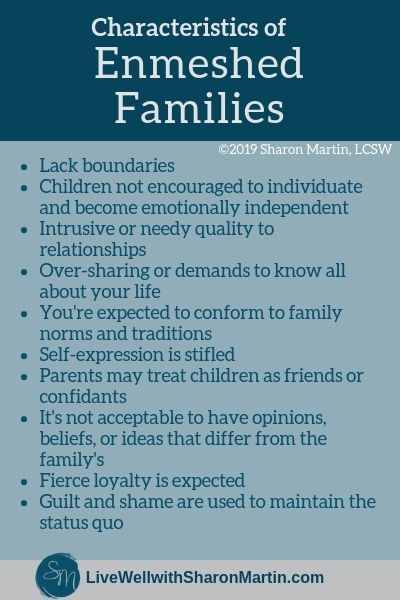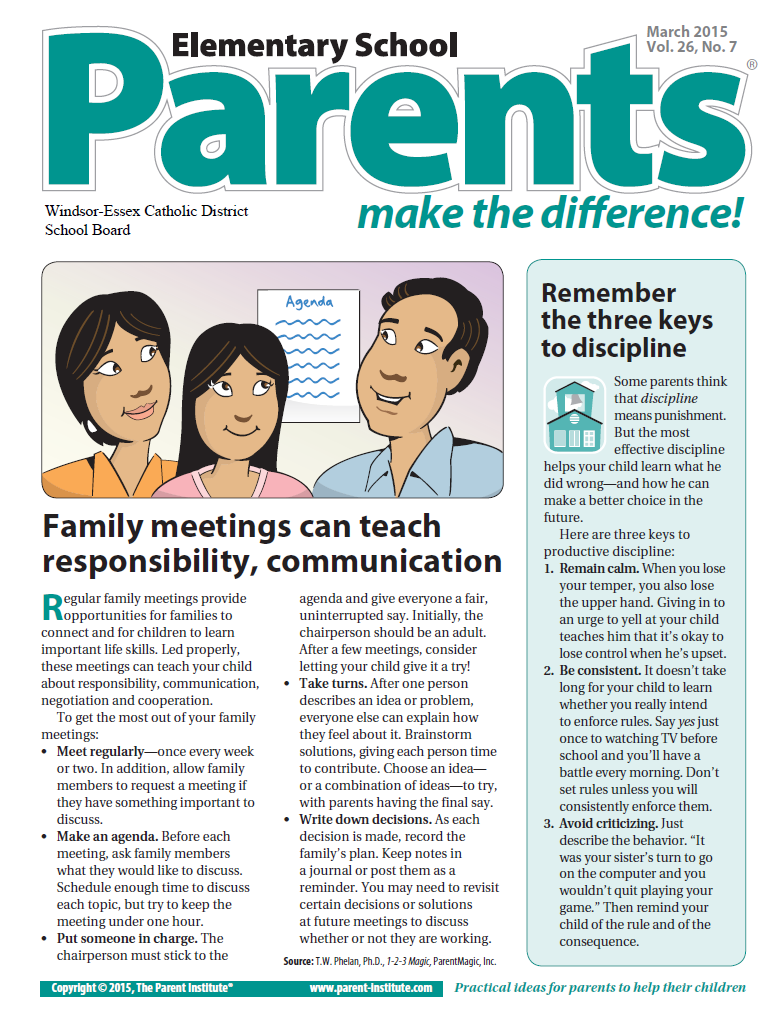Individuate from parents
Individuation Process | 3 steps to becoming your own person
Navigation
By Jake Eagle on December 1, 2011 in Individuating
Autonomy and Intimacy
To fulfill our greatest potential requires us to differentiate so that we can experience autonomy from others and intimacy with others. One key step to accomplish this is that we must individuate.
The individuation process most commonly occurs when an adult child individuates from their parents, but it also occurs between romantic partners—and sometimes between friends. Each situation has its own complexity because we need to untie the emotional knots that bind us to these significant people in our lives.
The more thoroughly we individuate, the more we become our own person. This means we no longer live on autopilot; we no longer live our lives as prescribed by other people. We determine our values and live according to them. We may choose to adopt some of the values or principles of someone we respect, but the key is that we choose these values or principles for ourselves.
More responsibility, more freedom
As we individuate we take greater responsibility for our choices, our behaviors, our beliefs and the emotional footprints we create and leave behind. Paradoxically, the more responsibility we take, the more freedom we have—the freedom to be ourselves. As we take more responsibility for ourselves, we untie our familial knots. It is those knots that keep us bound up as victims of our past.
We can untie the emotional knots by taking ourselves through the individuation process. And it is a process. It takes time. There are specific steps we can take to individuate, some occur as early as our teen years, most occur in our twenties and thirties, and some still need to be taken in our forties, fifties, sixties and beyond. It is seldom, if ever, too late to individuate—although the sooner we start the easier our journey tends to be.
There are two sides of the individuating equation; there is the role of the adult child who is trying to grow into a mature adult and there is the role of the parent who must learn to witness the evolution of their adult child into an independent person.
The Three Stages of The Individuation Process
There are three stages in the process of individuating: declaring, separating, and reconnecting. In addition to reading about those stages by clicking each link, you can download the article: Individuating From Our Parents and Partners, by selecting it from the list below:
Your first and last name:Your email:
Documents:
Finding YourselfIndividuating From Parents And Partners
Overview Of Live Conscious
Reology Japanese
Why Wait To Be Happy
If you're considering attending one of our retreats, click the link below to fill out the Personal Information Form. After we review it we'll get back to you with any additional questions or comments we may have.
Personal Information Form
About Jake Eagle
View all posts by Jake Eagle →
Subscribe
Every month we will send you one thought provoking question along with our response.
Ecology of the Heart | Huffington Post
How To Individuate | Step One
Surviving Your Teen's Individuation Process
Skip to content Surviving Your Teen’s Individuation ProcessThe concept of individuation is referenced in many different psychological theories. The growing independence and autonomy of children—most pronounced during adolescence— is a part of normal development. During individuation, your child is becoming their own person. They’re developing who they are, separate from parental influence. Individuation starts in early childhood but is most noticeable (and often most distressing for parents) during adolescence.
If your teenage child has recently become more self-focused, this likely means they are individuating. While this is a natural process, it can often seem problematic from a parent’s perspective. Your teen may have become much more self-absorbed, spending an increasing amount of time preening themselves and obsessing over things like clothing and hairstyles.
Your teen may also have become very vocal about their opinions, voicing them without being asked (and with an apparent disregard of how they might offend those around them). In fact, they seem to invite conflict with their persistent disagreeableness.
When you show interest in your teen’s life or ask a simple question, they react defensively. They accuse you of trying to control them, leading to arguments. They rebel against anything that doesn’t suit them, but they blame their new rebellious behaviors on you—even though you haven’t changed how you treat them.
As your teen individuates, you may also notice them spending less time with the family and more time with friends. These friendships are incredibly important to them, even if they don’t come out and say so. Your teen may also be trying to hide their romantic relationships from you, making you uneasy. Your child’s self-absorption, rebelliousness, and apparent rejection are difficult to bear.
What triggers individuation?
You may wonder where your teen’s behaviors are coming from and worry that your teen may be on a destructive path. You may even blame yourself for falling short as a parent.
You may even blame yourself for falling short as a parent.
On the contrary, the individuation process isn’t the result of bad parenting, outside influences, or anything else. It is the natural result of your child’s maturation. Your teen’s behaviors are a sign that the individuation process is progressing normally.
As a parent, you can’t—and shouldn’t—try to stop the process. You may be offended by your teen’s rebellious behaviors, hurt by their apparent rejection, and dismayed by their life choices. If so, it is essential to remember that the development of this autonomy is preparing your child for adulthood. The only way your child can become a successful adult is to find and pursue what makes them happy and live according to their own values—which won’t necessarily align with yours.
Why is individuation important?
Teens who fail to individuate during adolescence often unquestioningly adopt a parent, relative, or friend’s traits and qualities. When they reach adulthood, they will continue to align with those beliefs without considering whether they believe in them. As a result, they may experience an existential crisis later in life.
As a result, they may experience an existential crisis later in life.
They may wake up one day wondering why they chose the career or spouse they did. Was it truly their own choice, or were they just doing what others encouraged them to do? They might feel like an imposter, become disillusioned, or get depressed. If they have already invested much of their life in a certain career or lifestyle, they will find it much more difficult to change directions than if they had made these decisions earlier.
Their subsequent attempts to individuate as adults may cause risky behaviors at a time when they have no safety net or parental boundaries to protect them. Individuation during adulthood may also result in more parent-child conflict than what would have occurred during their teenage years.
What we often see when teens fail to individuate are emerging adults that get stuck. They are dependent upon their parents to support them in most of their endeavors. These teens feel as if they are not capable of moving forward and becoming truly independent. They are anxious, depressed, or lack self-efficacy. In some ways, they may feel immature for their age.
They are anxious, depressed, or lack self-efficacy. In some ways, they may feel immature for their age.
When does individuation happen, and how long does it take?
If you haven’t been getting along with your teen, you may be hoping that this individuation stuff is just a phase. It’s true that some aspects of individuation are more distressing than others and that certain behaviors will ease over time.
However, individuation is not a quick process. Technically, individuation starts when you’re born and continues into old age. When your toddler learns how to say “no,” that is an early form of individuation. A fifth-grader expressing embarrassment when a parent shows up in their classroom is individuating. When an adult divorces their spouse and redefines what they’re looking for in a partner, that could also be considered a form of individuation.
You should also know that it is very difficult to predict how your teen’s individuation will progress. The most apparent signs of individuation may show up around age 11 or 12, or they may appear much later. If your child is strongly attached to you, they may not individuate much until college. Health issues, major life events, and other disruptions can also change the individuation timeline.
If your child is strongly attached to you, they may not individuate much until college. Health issues, major life events, and other disruptions can also change the individuation timeline.
Surviving your teen’s individuation
Are you wondering how to improve your teen’s individuation process? Here are some ways you can help your teen individuate safely and naturally (while preserving your sanity):
Allow it to proceed naturally
It’s no reason for concern if your late teen still hasn’t shown many signs of individuation. Just give it time, and encourage the process whenever you do see it. Similarly, you should not attempt to slow the process down if it begins earlier than you expect.
Don’t take it personally
I have had upset parents say to me, “My child is rejecting my religion!” or “They are abandoning the sport they’ve been training in for years!” If something like this is happening to you, it is only natural that you would feel dismayed and disappointed. You may even feel betrayed or angry. In such cases, it is important to remember that your children are not supposed to be carbon copies of you. If they are ever to be truly happy, they must find their own way in the world (aided by the knowledge and moral foundation you have imparted to them, of course).
You may even feel betrayed or angry. In such cases, it is important to remember that your children are not supposed to be carbon copies of you. If they are ever to be truly happy, they must find their own way in the world (aided by the knowledge and moral foundation you have imparted to them, of course).
Reevaluate your expectations
If you are clinging to the belief that your child will do, achieve, or become a certain thing, it’s time to let that belief go. If you teach them valuable life skills through your own example, they will likely internalize much of that. However, a child is not a ball of clay just waiting to be formed. They are more like seeds that require good care to grow up strong. You can help ensure your child is safe, healthy, and happy, but they will make up their own mind regarding how they want to live their life.
Create a solid moral foundation
Teens’ tendency to become very self-involved and worry about how others perceive them can lead to ethical problems. Perhaps your teen is gossiping about other girls at school or engaging in risky behaviors in a desperate attempt to fit in. You must encourage them to consider the moral implications and consequences of their actions, both now and in the future. At the same time, you must also. . .
Perhaps your teen is gossiping about other girls at school or engaging in risky behaviors in a desperate attempt to fit in. You must encourage them to consider the moral implications and consequences of their actions, both now and in the future. At the same time, you must also. . .
Empathize with your teen
You may not care whether your teen has the same cool T-shirt as all of his friends, but you better believe it is important to him. Understanding individuation as you do, you recognize how important it is for your teen to feel comfortable with their appearance. If they invest a lot of time in it and get upset at perceived inadequacies, validate their feelings rather than brushing them off.
Encourage positive peer relationships
As long as you feel confident that your teen is in a safe environment, allow them to spend time with their peers. It may feel like they spend all of their time with their friends (when they’re not shut up in their rooms, of course), but this will likely subside as they feel more secure in their own identities.
Set reasonable boundaries
Don’t just chalk it up to individuation if your child engages in self-harming, using alcohol/drugs, or taking part in other risky activities. Kindly but firmly intervene by letting them know what is and is not acceptable. At the same time, leave room for your teen’s growing autonomy by avoiding placing too many rules on them. As they navigate challenges and make mistakes, they will acquire skills that they’ll need as adults. Learn how to set teen boundaries and consequences here.
Support your teen as an individual
Rather than always providing the answer when your teen encounters a challenge, ask them how they think it should be handled. Bring up possible ethical issues and get their thoughts on them. You can also compliment your teen on their choices and accomplishments whenever you get the opportunity.
Adolescent individuation is rife with change and conflict. If you could use some help getting through your teen’s individuation, consider having your teen come in for therapy. Our resident teen therapist will quickly build a rapport with your teen that will result in a supportive and transformational experience. For more information on raising a successful teen, visit our teenage counseling page, or book a free 20-minute phone call with Dr. Jenifer Goldman, our adolescent specialist.
Our resident teen therapist will quickly build a rapport with your teen that will result in a supportive and transformational experience. For more information on raising a successful teen, visit our teenage counseling page, or book a free 20-minute phone call with Dr. Jenifer Goldman, our adolescent specialist.
Go to Top
7 steps of growing up: separation from parents
Until separation from parents occurs, a person cannot fully start his own life. For a child up to a year old, physical and psychological merging with his mother gives a sense of security, a feeling of complete acceptance, trust and unconditional love. Throughout life, a person tries to return to this symbiosis, trying to achieve a similar feeling when communicating with parents or a partner. The desire to receive unconditional acceptance may remain the most important thing in life. nine0003
How to understand that you are in close contact with your parents and not separated from them:
in relationships with people you always strive to prove your independence or, on the contrary, find an authoritarian figure who tells you what to do;
you are often disappointed in people because they do not live up to your expectations;
you repeat parental scenarios, although you once promised yourself to do exactly the opposite, and you cannot get out of this cycle; nine0009
you have been “looking for yourself” for years, you cannot understand what you want in life, you make choices under the influence of parental attitudes and do not understand which ones suit you and which do not;
the approval of others is important to you; in criticism, you hear the phrase "you are bad (bad)", and you lose heart;
you often feel your own impotence, which makes it impossible to build a career, earn more and go towards your dream;
you managed to reach heights in some business, only the more you think about it, the more sure it turns out that this work is hard labor, and the heights are “not yours”; nine0003
in communication with friends, in romantic relationships, with colleagues or bosses, you often behave like a child: throw tantrums, get offended, hang up or hide from problems;
There is a friend in your life who "knows what's best. " Dependence arises from it: you go to the same places, copy your hobbies, study at the same university - and often get offended that you are not paid enough attention;
" Dependence arises from it: you go to the same places, copy your hobbies, study at the same university - and often get offended that you are not paid enough attention;
in a relationship with a partner, you want him (her) to talk (a) about love 24/7 and be (a) there all the time, and if the partner disappears, you perceive this as a betrayal; nine0003
you can't manage to arrange your personal life;
you have problems with your own growing up children: you cannot give them responsibility in the same way as you did not take it from your parents in your time.
Separation is necessary because it leads to the ability to distinguish yourself, your feelings and desires from others, to understand what belongs to you and what belongs to your mother or partner. After separation, a psychic space arises inside that allows you to accept and love yourself. nine0003
What to do?
Accept that you and your parents are different people. Make a list of how you differ from mom and dad. Not worse or better, but different. For example, mom loves broccoli, and you love fried potatoes; dad has brown eyes, and you have blue. The longer the list, the better. So your consciousness, and after it your subconscious mind, recognizes that these differences have the right to exist.
Make a list of how you differ from mom and dad. Not worse or better, but different. For example, mom loves broccoli, and you love fried potatoes; dad has brown eyes, and you have blue. The longer the list, the better. So your consciousness, and after it your subconscious mind, recognizes that these differences have the right to exist.
Refuse idealization. nine0006 Make a list of imperfections in each of your parents. Only honestly, without hiding anything: describe the appearance, smells, habits, reactions. Recognize that your parents have the right to be unpleasant people. Create borders. Determine and write down for yourself the rules that apply in your territory. Return responsibility. As honestly as possible, admit to yourself what else you depend on your parents for. It can be money, help with grandchildren, emotional support, etc. Understand what benefits your current relationship Thank your parents. Remember what you can say thank you for. At least for the fact that you were born, they taught you to recognize negative emotions, select sarcastic comments for any situation, get away from a scandal, etc. Recognize the right to your life. Parents have this right: they can be what they want. Don't try to change them. If you are ready, ask your parents for forgiveness for childishly demanding that they become different. You have this right: you are now an adult and can give yourself everything that you once lacked. Prepared by Maria Krasheninnikova-Height; The material was prepared on the basis of lectures by Ksenia Ustinova for the Faculty of Psychology "Learning Environments" DID YOU LIKE THIS ARTICLE? Live-courses from 1 month
Make a list of what you missed in your childhood - apart from dad, apart from mom: toys, time, freedom, attention, support, kind words, etc. And then sincerely and honestly refuse these requirements for parents, because that they don't owe you anything. Now you can give it all to yourself! nine0003  This is not possible with you, but instead you can do this. Allow yourself to not tolerate violations of your boundaries and constructively explain to your parents that you will not allow them to be crossed. “Mom, I do not want to discuss topics related to the assessment of my personality / appearance / relationship in marriage. If you start talking about it, I will tell you to stop." Be confident and consistent. Mom can put forward the same list of taboo topics - be prepared to accept them
This is not possible with you, but instead you can do this. Allow yourself to not tolerate violations of your boundaries and constructively explain to your parents that you will not allow them to be crossed. “Mom, I do not want to discuss topics related to the assessment of my personality / appearance / relationship in marriage. If you start talking about it, I will tell you to stop." Be confident and consistent. Mom can put forward the same list of taboo topics - be prepared to accept them  Any parent knew how to do something well - for example, to swear. Think, remember and write down, the more the better
Any parent knew how to do something well - for example, to swear. Think, remember and write down, the more the better
Online courses in the most relevant areas of psychology from leading practicing psychologists.
More details
Recorded courses
from 1 month
Recorded individual intensive courses in key disciplines or sets of short-term courses to choose from in all areas.
| Read more |
TO OTHER MATERIALS
What to do if your parents get into life and decide everything for you? Parental control Familiar? If yes, chances are high that you are dependent on your parents. Together with psychologist Elena Novoselova, we figured out what separation is, how to set boundaries with your parents and how to understand that they are manipulating you. nine0003
What is separation and where does parental dependency come from?
Separation is the separation of yourself from your parents and the readiness to take responsibility for your life. An adult child needs to fill his bumps, do what he wants, and not what his parents want. Economic, psychological, physical separation usually occurs in combination. If a person has not materially separated from the parental hearth, then there will be no separation at the psychological level either. nine0003
Such a departure from the family is not about scandals and breakups. It comes in a measured way, with a nice warm conversation about how you've grown up and want to move into your life while loving your parents. But if the person left, but the umbilical cord was not cut and the mother calls 25 times a day, demands a report, the key to the apartment and can call in without warning, then this is already a conflict situation . And it originated not at the moment of separation, but much earlier.
It comes in a measured way, with a nice warm conversation about how you've grown up and want to move into your life while loving your parents. But if the person left, but the umbilical cord was not cut and the mother calls 25 times a day, demands a report, the key to the apartment and can call in without warning, then this is already a conflict situation . And it originated not at the moment of separation, but much earlier.
Everything here depends on the position of the mother. If she appoints the child as the main person in her life, her meaning, then a dependent relationship arises, a mother complex. A little person is appointed responsible for mother's mood, happiness, for her living every day. And he has to overcome this complex. nine0003
The problem with maternal power in Russia is very serious, our mother is sacred, because we are in the field of Christian culture, where everything comes from the holiness of the mother [and parents in general]. We grow up with the feeling that mother must be loved, no matter what, mother must be obeyed.
At what age does separation from parents occur?
Coming out of adolescence is the best time to break up. For some it happens earlier, for others later. Now it is generally accepted that for girls at 24 years old, for boys at 25 years old, adolescence ends, but this is at the level of physiology. A person can mature for an independent life both at 18 and at 20, it all depends on life history. nine0003
What happens if you don't separate in time?
Then a person begins to live according to the standards of the previous generation. This will certainly cause a lot of problems. There will be unpleasant situations related to the fact that the mother's baby is always with her, and he / she is already 40 years old. In this case, it is unlikely that you will be able to create your own life.
Take, for example, a man, he is 30, he has a girlfriend. While their relationship is in the candy-bouquet stage, mom is happy, they go to visit her, she meets them with pies. Exactly until the moment when he is about to marry, then this girl becomes the most unpleasant in the world, because she claims to have a precious son. nine0003
Exactly until the moment when he is about to marry, then this girl becomes the most unpleasant in the world, because she claims to have a precious son. nine0003
If a person is separated from his parents, then relations with them become a hundred times better. Then true love begins without fear and duty. And if the separation did not happen, this is an eternal teenage rebellion.
How do you build personal boundaries with your parents?
The first thing to do is think about who you are and what you want. And then sit down calmly and talk with your parents. Explain that you are an independent, adult person and understand their anxiety, but if they continue to patronize you, you will not become happier from this. And offer a plan for their further participation in your life. nine0003
How not to quarrel with your parents?
No need to be afraid of quarrels. There are two types of conflict: hidden and open. In situations where the other side, for its own reasons, does not want to understand that the child already has a life of its own, and still sees the baby in an adult, one must enter into a conflict, otherwise there is no way.
In general, concern about separation is not childish, it is simply up to children to decide. You will feel guilty because the feeling of guilt and the feeling that you should be a good child is instilled from childhood. nine0003
But respecting and loving your parents does not mean obeying and living by their rules.
It is important to be clear that you cannot be responsible for the emotional part of your parents' life. Mom is an adult, and the task of managing her emotions and bad mood is hers, not yours.
Sometimes one call from my mother is enough to ruin the day, and she may not say anything, just by intonation - these are the same manipulations as not calling, turning away, breaking some established rules. Let's say you agreed to call every evening because you are worried about your mother's health, and she does not answer the phone. You can’t find a place for yourself all evening or go to her place - it’s not up to your life here. nine0138 If all this is unpleasant for you, if it destroys your life, it is important to act and not be afraid of a quarrel.
What to do if parents constantly worry, call and forbid?
It is already impossible to forbid anything for an adult. Parents can express their negative emotions. They are always worried, from the moment a child is born until the end of days. The task of parents is to cope with this anxiety. But the easiest way to deal with it is to control the child, and not to calm the anxiety in yourself. nine0003
It's important to acknowledge that parental anxiety is normal, but it's theirs, not yours. Tell them something from time to time, maybe as little as possible so that they don't worry. It is not necessary to lay out all the subtleties of your life, excessive frankness is not needed .
If they call too often and try to control, I must say that this is unpleasant for you. Explain that if you do not pick up the phone, it means that you are busy and will call you back when you are free, maybe the next day. It is important to break this chain of control. Talk about it and say: "I'm sorry, I love you very much, but this causes a lot of trouble." At first, everything is at the level of negotiations. nine0003
Talk about it and say: "I'm sorry, I love you very much, but this causes a lot of trouble." At first, everything is at the level of negotiations. nine0003
What if your parents don't accept your partner?
If you think that this person is valuable in your life, then your parents cannot influence your choice. If they put pressure, scandal, say bad things, then you should stop talking about this topic. These are personal boundaries.
It is important to remember that your parents are not part of your new family and you have two ways: separate so that they are satisfied, or minimize their meeting with a partner, explaining this by saying that since they cannot create calm relationships in the family and cope with with your emotions, then you will see each other on big holidays. nine0003
What should I do if parents interfere in the upbringing of children?
Very often grandmothers consider their grandchildren to be their children. It is important to determine who is the mother here and who is responsible for these children. In adulthood, the mother will have to answer for how the grandmother influences the child in childhood. It is necessary to agree and determine: I am your child, and these are already my children, then there will be demand not from you, but from me.
In adulthood, the mother will have to answer for how the grandmother influences the child in childhood. It is necessary to agree and determine: I am your child, and these are already my children, then there will be demand not from you, but from me.
What if your parents decide who you should be, where to study and what profession to choose? nine0133
When we talk about separation, we mean adults, independent people. At 16, this is still a child, and only a very talented person at that age knows who he wants to be, but there are few of them. And when a teenager says that he is dropping out of school to become a world skateboard champion, and at the same time all his activities are limited to skating in the yard, then, of course, some kind of parental policy is needed here, because the person is clearly confused.
On the one hand, if no arguments helped, let him get confused, let him go to his skateboard. By the age of 25, he will come to his senses and enter the institute he wants to go to. There is nothing wrong with allowing a person at the age of 16-17 to taste life and color. nine0003
There is nothing wrong with allowing a person at the age of 16-17 to taste life and color. nine0003
On the other hand, when something is forbidden to him, it is also not so scary. He will unlearn, put his diploma on the table and go to study music. It doesn't hurt anyone as much as it seems. But parents also need to remember that a child will not always be able to graduate from the university they have chosen for him. You can lead a horse to water, but you can't force him to drink.
How do you know if a parent is manipulating you?
The first is the projection of a certain role onto you. You didn't talk to me like that, you didn't call me, so I felt bad. The second is the requirement of duty and such phrases as "you are ungrateful, I devoted my whole life to you." Although no one asked. And in general where the word "should" appears, there is no love, there is duty .
If you think deeply, who decides whether there will be a child or not? Parents. And it turns out from sexual pleasure: a man and a woman decide that they want to have sex and they will have a child. And then he becomes responsible for everything that happens to his parents.
And it turns out from sexual pleasure: a man and a woman decide that they want to have sex and they will have a child. And then he becomes responsible for everything that happens to his parents.
The child did not ask to give him life and devote himself to him [therefore he does not owe anything].
How not to feel guilty? nine0133
In such a situation, we are talking about emotional dependence that has been put on a person. This dependency is formed by the parent. For example, young children tend to be self-centered, they believe that everything depends on them. Therefore, if the mother is in a bad mood, the child will think that he is to blame. And what is to blame? How guilty? Why guilty? It is impossible to understand this at the age of 5–8. It's just a feeling of guilt. From here, this very parent complex is laid. You are only to blame because your mother wants it that way. nine0003
I have to sit down and figure out why I feel guilty? It is better to write down point by point what you may be to blame for. It turns out that nothing. If you do this work, these feelings will pass. And if you are really to blame for something, call and apologize.
It turns out that nothing. If you do this work, these feelings will pass. And if you are really to blame for something, call and apologize.
And again. Seven main tips on how to successfully separate from parents
Start earning
Separation is successful only when a person is no longer financially dependent on parents and is able to support himself. Living on the money of mom and dad, it is impossible to separate from them. nine0003
Get a home
The same goes for housing. As soon as you have your own living space, for which you will pay on your own and where you will be the full owner, relations with parents will begin to be built differently.
Talk to your parents
Everything starts with a dialogue. Explain to your parents that you are already an adult, independent person, that you want to live on your own and take responsibility for yourself, tell us about your future plans and how you are going to provide for yourself and how you see your relationship with your family in the future. In an ideal world, this should be enough for your parents to understand you. nine0003
In an ideal world, this should be enough for your parents to understand you. nine0003
Do not tell your parents everything about yourself
Parents are worried, this is normal. To make them less anxious, share some moments of your life with them, but do not go into details and leave something that can upset, scare or anger them in brackets. Excessive frankness can only hurt.
Set personal boundaries
This is a subtle art that has to be learned. You can’t push your parents away when they bother you, but immediately run to them as soon as you need help or money. Indicate that this is your life, do not pick up the phone if you are uncomfortable talking, do not run to fulfill parental orders at the first command, warn that if your choice in your personal or professional life does not suit them, you will no longer discuss it with them. nine0003
Don't be afraid of conflict
Many continue to obey their parents simply out of fear of conflict. But there is no need to be afraid of them.














